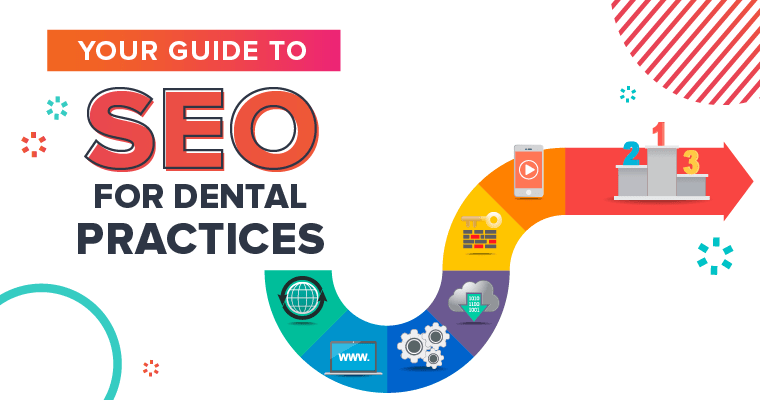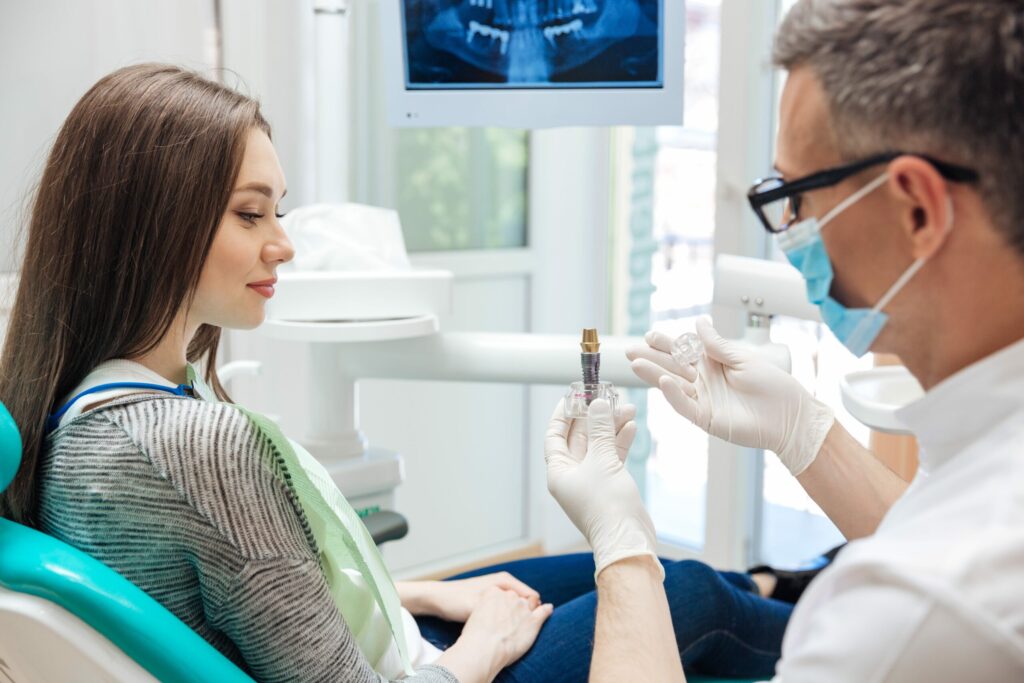If you’re a dentist or orthodontist looking to attract more patients and grow your practice, then boosting your online presence is essential. In today’s digital age, having a strong online presence can make a huge difference in the success of your dental practice. That’s where SEO (search engine optimization) comes in. By creating articles that target dentists and orthodontists specifically in need of an SEO agency, you can effectively reach your target audience and showcase the services you offer. And if you’re looking for an SEO agency in Philadelphia, look no further than Ortho Advertising. With their expertise in SEO for dentists, they can help take your dental practice to the next level and attract more patients than ever before.

1. Understanding SEO for Dental Practice
What is SEO?
SEO, or Search Engine Optimization, refers to the strategies and techniques used to improve a website’s visibility and rankings on search engine results pages (SERPs). In other words, SEO helps dental practices optimize their online presence so that potential patients can easily find them when searching for relevant services or information.
Why is SEO important for dental practice?
In today’s digital age, a strong online presence is crucial for any dental practice. With the majority of people turning to search engines when looking for dental services, having a well-optimized website can significantly increase your practice’s visibility and attract more potential patients. By investing in SEO, you can ensure that your practice appears at the top of search results, giving you a competitive edge and driving more organic traffic to your website.
How does SEO impact dental practice?
SEO has a profound impact on dental practices by influencing their online visibility, website traffic, and ultimately, the number of patients they attract. By implementing effective SEO strategies, dental practices can improve their website rankings in search results, making it easier for potential patients to discover their services. Higher rankings also foster credibility and trust among users, leading to increased website traffic and ultimately more patient conversions.
Benefits of SEO for dental practices
- Increased visibility: SEO can optimize your practice’s online presence, ensuring that you rank higher in search results and gain more visibility among potential patients.
- Targeted traffic: SEO helps attract relevant traffic to your website, as it focuses on optimizing keywords and other elements that prospective patients are likely to search for.
- Greater credibility: Higher search rankings instill trust and confidence in potential patients, as they perceive top-ranked practices as more credible and trustworthy.
- Cost-effective marketing: Compared to traditional advertising methods, SEO offers a cost-effective way to reach a wider audience and generate long-term results.
- Better user experience: SEO involves improving various aspects of your website, such as loading speed and mobile responsiveness, creating a more enjoyable user experience for visitors.
- Increased patient conversions: By optimizing your website and making it more user-friendly, SEO can help convert website visitors into actual patients.
2. Key Elements of Dental SEO
Keyword research
Keyword research is the foundation of any successful SEO strategy. It involves identifying and analyzing the specific keywords and phrases that potential patients are using to search for dental services. By targeting the right keywords, you can optimize your website content and increase your chances of ranking higher in search results.
On-page optimization
On-page optimization involves optimizing individual web pages to improve their search engine rankings. This includes elements such as meta tags, headings, URLs, and internal linking, among others. Dentists can optimize their website’s on-page elements to make it easier for search engines to understand the content and relevance of their website.
Technical SEO
Technical SEO focuses on optimizing the technical aspects of a website to improve its search engine visibility. This includes factors such as website loading speed, mobile responsiveness, crawlability, and structured data implementation. By ensuring that your website meets technical SEO requirements, you can enhance its performance and user experience, thereby boosting your rankings.
Local SEO
Local SEO is particularly relevant for dental practices, as it aims to improve a business’s visibility in local search results. By optimizing your website for local keywords, claiming and optimizing your Google My Business listing, and ensuring consistent NAP (Name, Address, Phone Number) across online directories, you can attract more local patients and increase your practice’s visibility within your community.
Mobile optimization
With the increasing use of mobile devices for online searches, it is vital for dental practices to have mobile-optimized websites. Mobile optimization involves making your website easily accessible and user-friendly on mobile devices, ensuring that potential patients can navigate your website seamlessly and find the information they need.
Link building
Link building involves acquiring high-quality backlinks from other reputable websites. These backlinks indicate to search engines that your website is trustworthy and authoritative, ultimately boosting your search rankings. For dental practices, link building can involve reaching out to dental associations, local healthcare directories, and other authoritative sources within the dental industry to obtain relevant and valuable backlinks.
Content marketing
Content marketing plays a crucial role in dental SEO, as it involves creating and promoting informative, relevant, and engaging content to attract and retain patients. Dental practices can leverage content marketing by creating blog posts, videos, infographics, and eBooks that provide valuable information and address common patient concerns. By consistently producing high-quality content, dental practices can establish themselves as reputable sources of dental information and improve their search rankings.

3. Choosing the Right SEO Agency for Your Dental Practice
Identifying your goals and needs
Before selecting an SEO agency for your dental practice, it is essential to identify your specific goals and needs. Determine what aspects of your online presence you want to improve, whether it’s website rankings, organic traffic, or lead generation. This will help you find an agency that aligns with your objectives and can provide tailored strategies to meet your unique requirements.
Researching potential SEO agencies
When researching potential SEO agencies, it’s crucial to consider their expertise, experience, and reputation within the dental industry. Look for agencies that specialize in dental SEO and have a proven track record of success. Explore their website, case studies, and client testimonials to get a better understanding of their capabilities and the results they have achieved for other dental practices.
Evaluating their experience and expertise
When evaluating SEO agencies, consider their level of experience and expertise in the dental industry. Look for agencies that have worked with dental practices before and understand the specific challenges and opportunities within the dental field. An agency with industry-specific knowledge can help create customized strategies tailored to your dental practice’s needs.
Checking client reviews and testimonials
Client reviews and testimonials can provide valuable insights into an SEO agency’s performance and customer satisfaction. Take the time to read reviews and testimonials from other dental practices that have worked with the agency you are considering. Look for positive feedback, successful case studies, and evidence of long-term partnerships, as these indicate a reputable agency that delivers results.
Considering location and local expertise
While location may not be a determining factor when choosing an SEO agency, consider the benefits of working with an agency that understands the local landscape and has experience with dental practices in your area. Local knowledge can help the agency tailor their strategies to your specific location and target audience, leading to more effective results.
4. Optimizing Your Dental Website for SEO
Creating a strong website structure
A strong website structure is the foundation of effective SEO. Ensure that your dental website has a clear hierarchy, logical navigation, and organized content. This will help search engines understand the organization of your website and make it easier for users to find the information they need.
Implementing relevant keywords
Keyword implementation is crucial for dental SEO. Identify relevant keywords and phrases that potential patients are likely to search for when looking for dental services. Incorporate these keywords naturally into your website’s content, headings, meta tags, and URLs to improve your chances of ranking higher in search results.
Optimizing title tags and meta descriptions
Title tags and meta descriptions are HTML elements that provide concise summaries of web page content. Optimize your title tags and meta descriptions by including relevant keywords and compelling information to entice users to click on your website in search results. Well-optimized title tags and meta descriptions can improve click-through rates and drive more organic traffic to your dental website.
Developing unique and engaging content
Creating unique and engaging content is essential for dental SEO. Develop informative and valuable content that addresses common patient concerns, provides dental tips, and showcases your expertise. Regularly update your website with fresh content to encourage search engines to crawl and index your site more frequently.
Optimizing images and multimedia
Optimizing images and multimedia on your dental website is crucial for both user experience and SEO. Compress image files to reduce their file size and improve website loading speed. Add alt text to your images to provide relevant descriptions for search engines and visually impaired users. Additionally, consider including videos and other multimedia that can enhance user engagement and contribute to a well-rounded SEO strategy.
Improving website loading speed
Website loading speed is a critical factor in SEO. Ensure that your dental website loads quickly on both desktop and mobile devices. Compressing images, minimizing code, and leveraging caching tools are some ways to improve your website’s loading speed. A faster loading website enhances user experience and can positively impact your search rankings.
Ensuring mobile responsiveness
Given the increasing use of mobile devices for online searches, it is crucial for your dental website to be mobile-responsive. Mobile responsiveness refers to how well your website adapts to different screen sizes and resolutions. A mobile-responsive website provides a seamless user experience across devices, improving user engagement and search rankings.
Enhancing user experience (UX)
User experience (UX) plays a significant role in SEO. Make sure your dental website is intuitive, easy to navigate, and visually appealing. Optimize the placement of important information, minimize the use of intrusive pop-ups, and ensure that users can find the information they need with minimal effort. A positive user experience encourages longer website visits, lower bounce rates, and improved search rankings.

5. Utilizing Local SEO Strategies for Dental Practices
Claiming and optimizing Google My Business listing
Claiming and optimizing your Google My Business (GMB) listing is essential for local SEO. Provide accurate and up-to-date information about your dental practice, including business hours, contact details, and services offered. Encourage your patients to leave reviews on your GMB listing, as positive reviews can boost your online reputation and increase your chances of appearing in local search results.
Consistent NAP (Name, Address, Phone Number)
Consistent NAP (Name, Address, Phone Number) information is crucial for local SEO. Ensure that your dental practice’s NAP details are consistent across your website, social media profiles, online directories, and other online platforms. Consistency in NAP information helps search engines understand the location and legitimacy of your practice, improving your local search rankings.
Local keyword optimization
Optimize your website’s content and meta tags with location-specific keywords to enhance your local SEO efforts. Include your city, neighborhood, or nearby landmarks in your content to target local search queries. By focusing on local keywords, you can attract potential patients in your vicinity and increase your practice’s visibility within your target location.
Online directory listings
Listing your dental practice in relevant online directories can boost your local SEO efforts. Ensure that you are listed in reputable directories such as Yelp, Healthgrades, and Yellow Pages, among others. Consistent NAP information and positive reviews on these directories can enhance your online visibility and credibility within your local community.
Online reviews and reputation management
Online reviews and reputation management are essential for local SEO. Encourage your satisfied patients to leave reviews on platforms such as Google, Yelp, and Facebook. Respond promptly to both positive and negative reviews, showcasing your commitment to patient satisfaction. Positive reviews not only improve your online reputation but also increase the likelihood of potential patients choosing your practice over competitors.
Creating location-specific landing pages
Creating location-specific landing pages can help you target specific areas or neighborhoods within your target location. Develop content that is tailored to each location, emphasizing the relevant services offered, testimonials from patients in that area, and any unique features or promotions for that specific location. Location-specific landing pages can improve your local search rankings and attract patients from individual neighborhoods or regions.
Earning backlinks from local sources
Earning backlinks from local sources can significantly benefit your local SEO efforts. Connect with local businesses, dental associations, and other authoritative sources within your community to establish partnerships and collaborations. By obtaining backlinks from relevant and reputable local sources, you can enhance your practice’s online visibility and promote your dental services to a local audience.
6. Importance of Content Marketing for Dental SEO
Creating informative and valuable blog posts
Creating informative and valuable blog posts is a cornerstone of content marketing for dental SEO. Develop blog posts that address common dental concerns, provide tips for maintaining oral health, and educate patients about various dental procedures. By offering valuable content, you establish yourself as a reputable source of dental information and attract potential patients looking for answers to their dental questions.
Producing engaging video content
Video content is a powerful tool for engaging with your audience and improving dental SEO. Create videos that showcase your practice, feature patient testimonials, or provide educational content on dental topics. Optimize your videos by including relevant keywords in titles, descriptions, and tags, and promote them on your website and social media platforms to increase engagement and drive more traffic to your practice’s website.
Designing visually appealing infographics
Infographics are visually appealing and shareable content pieces that can present complex dental information in a concise and easy-to-understand format. Design infographics that explain dental procedures, oral hygiene tips, or showcase interesting dental facts. Share these infographics on your website and social media platforms to attract and engage your audience, while also enhancing your SEO efforts.
Sharing patient testimonials and success stories
Sharing patient testimonials and success stories is an effective way to build trust and credibility with potential patients. Feature testimonials from satisfied patients on your website and social media platforms. Encourage patients to share their positive experiences and the results they have achieved through your dental practice. These testimonials and success stories demonstrate the quality of your services and can influence prospective patients’ decisions.
Developing educational eBooks or guides
Developing educational eBooks or guides is a valuable content marketing strategy for dental SEO. Create comprehensive resources on topics such as oral health, dental treatment options, or tips for maintaining a healthy smile. Offer these resources as downloadable eBooks or guides on your website, requiring users to provide their contact details to access the content. This strategy not only promotes your practice as a reliable source of dental information but also generates leads for your dental practice.
Utilizing social media for content promotion
Social media platforms provide an excellent opportunity to promote your content and engage with your audience. Share your blog posts, videos, infographics, and other content on platforms such as Facebook, Instagram, Twitter, and LinkedIn. Encourage likes, comments, and shares to increase your content’s reach and visibility. By leveraging social media for content promotion, you can drive more traffic to your website and improve your dental SEO.

7. Harnessing the Power of Social Media for Dental SEO
Creating a social media presence
Creating a strong social media presence is vital for dental SEO. Choose social media platforms that align with your target audience and establish profiles for your dental practice. Optimizing your social media profiles by including relevant keywords, accurate contact information, and a link to your website can improve your visibility in search results and drive more traffic to your dental practice.
Engaging with patients and community
Engaging with patients and the local community is a crucial aspect of social media marketing for dental SEO. Respond to comments and messages promptly, demonstrating your commitment to patient satisfaction. Engage in conversations, answer questions, and participate in discussions related to dental health on social media platforms. By actively engaging with your audience, you can foster a sense of community and build trust with potential patients.
Sharing dental-related content
Share informative and educational dental-related content on your social media platforms. This can include blog posts, videos, infographics, and news articles about the latest advancements in dental technology or oral health tips. By regularly sharing valuable content, you position yourself as a trusted source of dental information and increase the likelihood of potential patients choosing your practice for their dental needs.
Utilizing Facebook advertising
Facebook advertising offers a powerful targeting system that can help you reach your ideal audience effectively. Create Facebook ads specifically tailored to your target demographic, location, and interests. Use compelling visuals and ad copy to capture users’ attention and drive them to your dental website. Facebook advertising allows you to directly target potential patients and can be a cost-effective way to increase your practice’s visibility and attract new patients.
Running social media contests or giveaways
Running social media contests or giveaways can help boost engagement and increase your practice’s visibility on social media platforms. Encourage users to like, comment, share, or tag friends to participate in contests or giveaways. Offer dental-related prizes, such as a free teeth whitening session or a discounted dental check-up, to incentivize participation. By running social media contests or giveaways, you can attract new followers, increase brand awareness, and generate leads for your dental practice.
Leveraging influencer partnerships
Collaborating with relevant influencers in the dental or healthcare industry can help amplify your reach and enhance your dental SEO efforts. Identify influencers who align with your practice’s values and target audience, and explore opportunities for partnerships or collaborations. Influencers can help promote your dental services, share testimonials, and recommend your practice to their followers, increasing your visibility and credibility within your target market.
8. Effective Link Building Strategies for Dental Websites
Guest blogging on authoritative dental websites
Guest blogging involves writing articles or blog posts for other authoritative dental websites in the industry. By contributing high-quality content to reputable dental websites, you can build relationships with other professionals, reach a wider audience, and earn valuable backlinks to your own website. Guest blogging can improve your website’s visibility, enhance your credibility, and boost your dental SEO efforts.
Building relationships with local businesses
Building relationships with local businesses can provide opportunities to collaborate and earn valuable backlinks. Establish partnerships with local businesses in the dental or healthcare industry, such as orthodontists, pediatric dentists, or dental supply companies. Explore opportunities for cross-promotion, joint events, or co-authored content. By building relationships with local businesses, you can enhance your online presence and improve your search rankings.
Providing expert insights and interviews
Position yourself as an industry expert by providing insights and interviews to influential dental websites or publications. Offer to contribute to articles, answer expert questions, or share your professional knowledge on dental matters. By providing valuable insights and being featured as an industry expert, you can gain exposure, increase your online visibility, and earn authoritative backlinks to your dental website.
Participating in dental forums and communities
Engaging in dental forums and online communities allows you to contribute to discussions, answer questions, and share your expertise. Active participation in dental-related discussions helps build your reputation as a knowledgeable professional and encourages others to visit your website for more information. Include a link to your website in your forum signature or bio to generate backlinks and drive traffic to your dental practice.
Co-hosting webinars or educational events
Collaborate with other dental professionals, associations, or dental organizations to co-host webinars or educational events. Plan informative webinars or workshops on dental topics, inviting experts to share their knowledge and insights. Co-hosting these events not only positions you as a trusted authority in the dental field but also provides an opportunity to earn backlinks from partnering organizations or guest speakers, boosting your dental SEO efforts.
Creating valuable dental resources for other websites
Develop valuable dental resources, such as dental guides, checklists, or infographics, that other websites can link to and share with their audience. Offer these resources to dental associations, dental publications, or local healthcare websites to feature on their websites. By providing valuable resources, you encourage other websites to link back to your dental practice, improving your website’s authority and search rankings.

9. Measuring and Analyzing Dental SEO Performance
Setting measurable SEO goals
Setting measurable SEO goals is essential for tracking and analyzing your dental practice’s SEO performance. Define specific objectives, such as increasing organic website traffic, improving keyword rankings, or generating more patient leads. By setting clear goals, you can monitor your progress, identify areas for improvement, and make data-driven decisions to optimize your dental SEO strategies.
Utilizing Google Analytics for tracking
Google Analytics is a powerful tool that provides valuable insights into your website’s performance. Set up Google Analytics for your dental website to track and analyze key metrics such as website traffic, user behavior, and conversion rates. By monitoring these metrics, you can identify areas for optimization, evaluate the effectiveness of your SEO strategies, and make data-driven decisions to improve your dental SEO efforts.
Monitoring keyword rankings
Monitoring your dental practice’s keyword rankings is crucial for understanding your SEO performance. Track the rankings of your target keywords on search engine results pages and identify any fluctuations or trends. This information helps you assess the impact of your SEO efforts, identify keyword opportunities, and make necessary adjustments to improve your search visibility.
Analyzing website traffic and user behavior
Analyzing your website’s traffic and user behavior provides insights into how visitors interact with your dental website. Monitor metrics such as page views, bounce rates, session duration, and conversion rates to understand user preferences and behavior. By analyzing this data, you can identify areas for improvement, optimize user experience, and tailor your dental SEO strategies to meet user expectations.
Tracking leads and conversions
Track leads and conversions to assess the effectiveness of your dental SEO strategies in generating patient inquiries and appointments. Implement conversion tracking tools, such as Google Ads Conversion Tracking or form submission tracking, to monitor the sources of your dental practice’s leads. This data allows you to evaluate the performance of your SEO efforts, identify successful conversion channels, and optimize your strategies accordingly.
Performing regular SEO audits
Regular SEO audits are crucial for evaluating the overall performance and effectiveness of your dental SEO strategies. Conduct comprehensive audits of your website, assessing factors such as website structure, on-page optimization, technical SEO, backlink profile, and overall user experience. An SEO audit helps identify areas for improvement, fix any underlying issues, and ensure that your dental practice’s website remains optimized for search engine visibility.
10. The Future of Dental SEO
Voice search and natural language processing
Voice search and natural language processing are emerging trends in SEO that are expected to impact the dental industry. With the rise of smart speakers and voice-activated virtual assistants, more users are conducting voice-based searches for dental information and services. Dental practices should optimize their websites to accommodate voice search queries by incorporating natural language and conversational keywords into their content.
Artificial intelligence and machine learning
Artificial intelligence (AI) and machine learning are revolutionizing the way search engines analyze and understand online content. AI algorithms can interpret user intent more accurately, providing more relevant search results. Dental practices can leverage AI and machine learning advancements to optimize their content strategy, identify user preferences, and provide personalized, tailored experiences for their website visitors.
User experience (UX) optimization
User experience (UX) optimization will continue to play a crucial role in dental SEO. Search engines prioritize websites that provide a seamless, intuitive, and enjoyable experience for users. Dental practices should focus on improving website loading speed, enhancing navigation, and ensuring mobile responsiveness to meet user expectations. Prioritizing UX optimization will contribute to higher search rankings and improved user engagement.
Personalization and targeting
Personalization and targeting will become increasingly important in dental SEO. Dental practices can leverage user data and analytics to deliver personalized content and experiences to website visitors. By tailoring content and offers based on user preferences and behavior, dental practices can increase patient engagement and improve conversion rates.
Video and visual search optimization
Visual content, such as videos and images, are becoming increasingly popular in online search and SEO. Dental practices should optimize their visual content by utilizing relevant alt text, descriptive file names, and captions to enhance their visibility in visual search results. Additionally, optimizing videos for search engines by providing accurate titles, descriptions, and transcripts can further improve a dental practice’s online visibility and search rankings.
Integration of virtual reality and augmented reality
Virtual reality (VR) and augmented reality (AR) technologies are gaining traction and have the potential to transform the dental industry. These technologies can enhance patient experiences by allowing them to visualize dental procedures or treatment outcomes. While still in the early stages, dental practices should keep an eye on the developments in VR and AR and consider incorporating these technologies into their SEO and patient engagement strategies.
As the dental industry continues to evolve and adapt to the digital landscape, dental SEO remains a vital tool for attracting and retaining patients. By understanding the key elements of dental SEO, choosing the right SEO agency, optimizing your dental website, utilizing local SEO strategies, investing in content marketing, harnessing the power of social media, employing effective link building strategies, measuring SEO performance, and staying updated with future trends, dental practices can boost their online presence, attract more patients, and thrive in the competitive digital landscape.

